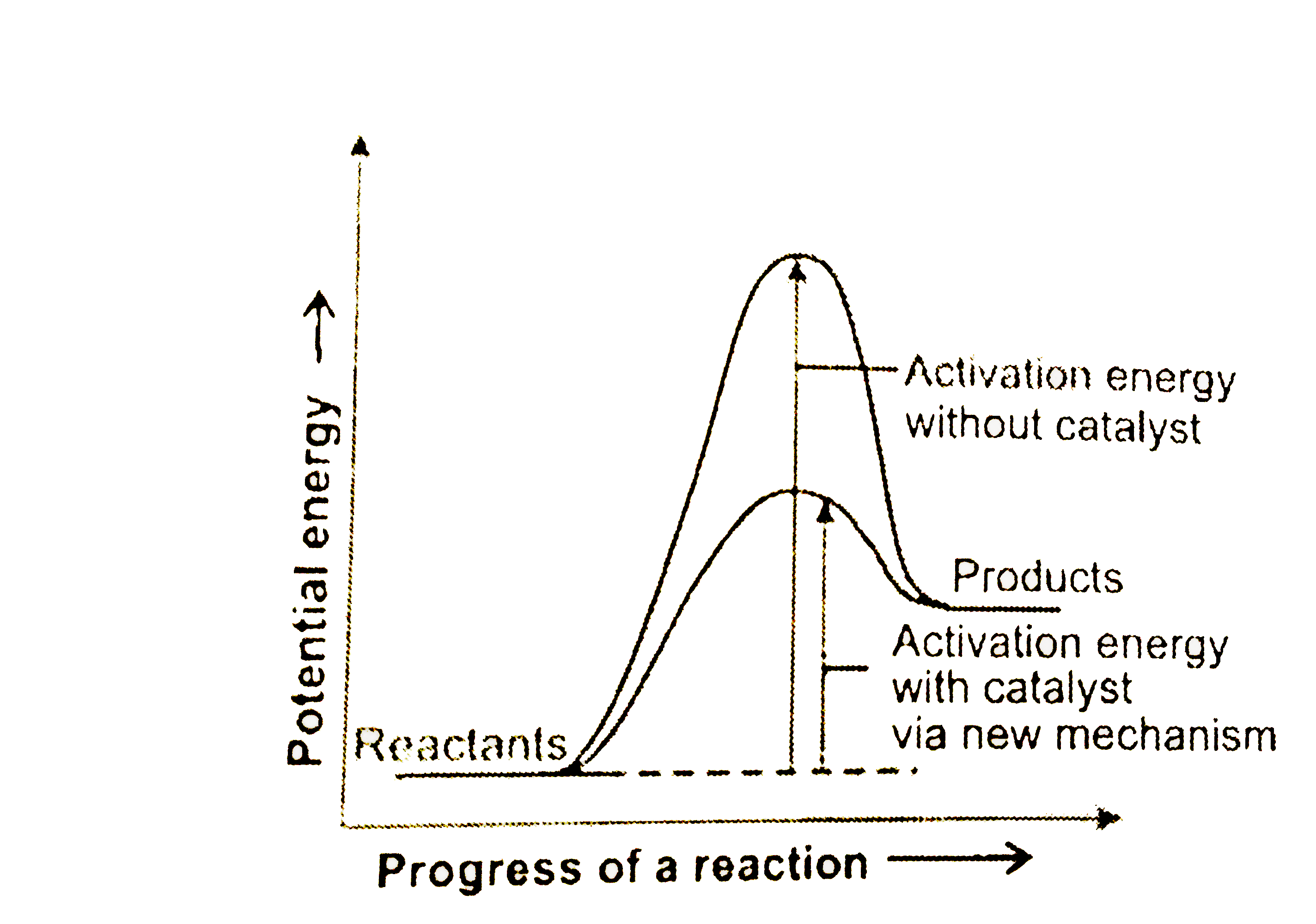On the basis of collision theory, explain the action of a catalyst on the rate of reaction
Text Solution
The chemical reactions can be carried out at a faster rate by increasing the temperature , but this is not possible in case of all reaction, Moreover, the reactions can be carried out of a lower temperature by using a catalyst . Since the process takes place at a lower place at a lower temperature, the cost of production gets reduced. A catalyst increases the rate of reaction by providing an alternative path for the reaction. This alternative path is associated with lower activation energy compared to the uncatalysed reaction, which is evident from the following graph.

In most of the reactions catalysts increases the rate of reactions. These types of catalysts are called positive catalysts.
Example : 2SO2+O2NO−−→2SO3
There are few reactions in which catalysts slow down the rate of reactions. These type of catalysts are called negative catalysts.
Example: Decomposition of hydrogen peroxide can be slowed down if some substances like glycerine, urea, acetanilide, sodium pyrophosphate etc. are added to H2O2.
|
Topper's Solved these Questions
- CHEMICAL KINETICS AND EQUILIBRIUMBOOK - PEARSON IIT JEE FOUNDATIONCHAPTER - CHEMICAL KINETICS AND EQUILIBRIUMEXERCISE - Very Short Answer Type Questions
26 Videos
- CHEMICAL KINETICS AND EQUILIBRIUMBOOK - PEARSON IIT JEE FOUNDATIONCHAPTER - CHEMICAL KINETICS AND EQUILIBRIUMEXERCISE - Short Answer Type Questions
10 Videos
- ATOMIC STRUCTURE BOOK - PEARSON IIT JEE FOUNDATIONCHAPTER - ATOMIC STRUCTURE EXERCISE - LEVEL-3
8 Videos
- CHEMICAL BONDING BOOK - PEARSON IIT JEE FOUNDATIONCHAPTER - CHEMICAL BONDING EXERCISE - Level 3
10 Videos
Similar Questions
Knowledge Check
Which of the following statement is not correct to explain the effect of catalyst on rate of reaction?
AA catalyst alters the Gibbs' energy of a reactionBA catalyst does not change equilibrium constant of a reactionCA catalyst reduces the activation energy between reactants and products 7DA catalyst provides an alternate reaction mechanismAccording to collision theory of reaction rates
Aevery collision between reactans leads to chemical reactionBrate of reaction is proportional to velocity of moleculesCall reactions which occur in gaseous phase are zero order reactionsDrate of reaction is directly proportional to collision frequencyAccording to collision theory of reaction rates
Aevery collision between reactants leads to chemical reactionBrate of reaction is proportional to velocity of moleculesCall reactions which occur in gaseous phase are zero order reactionsDrate of reaction is directly proportional to collision frequency
What is collision theory of reactant rates?
View SolutionExplain graphically the effect of catalyst on reaction rate.
View SolutionGraphs based on Arhenius Theory | Effect of catalyst on Rate of Reaction
View SolutionAccroding to collision theory of reaction rates :
View SolutionAccording to collision theory of reaction rates, rise in temperature of a reaction will increase the rate of the reaction because of
View Solution
